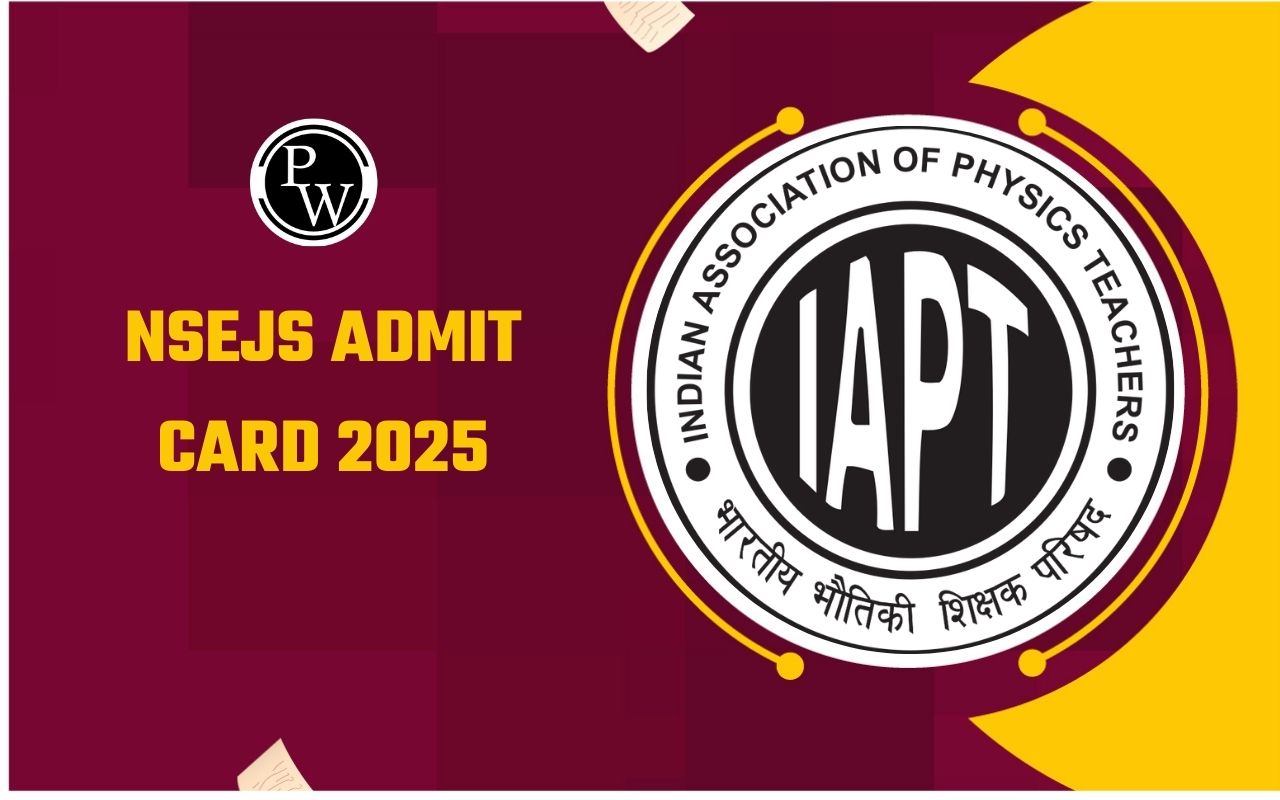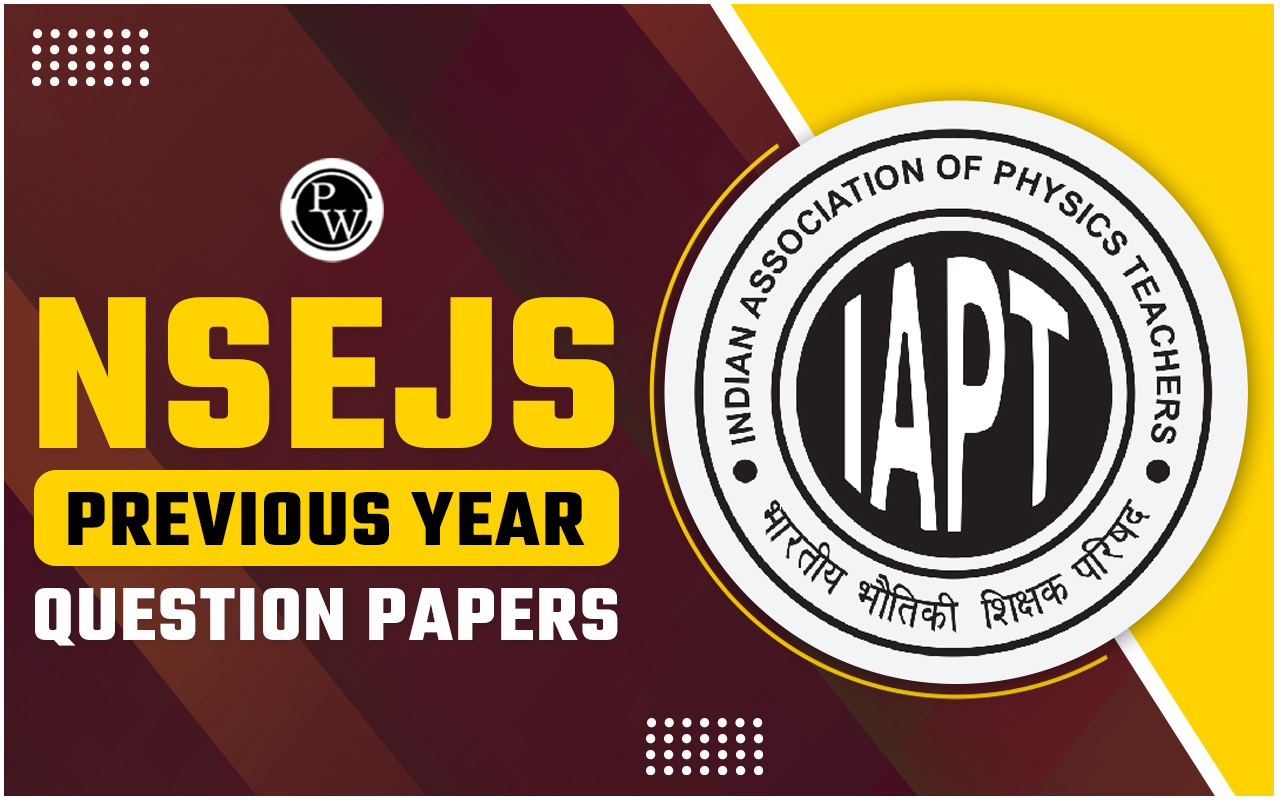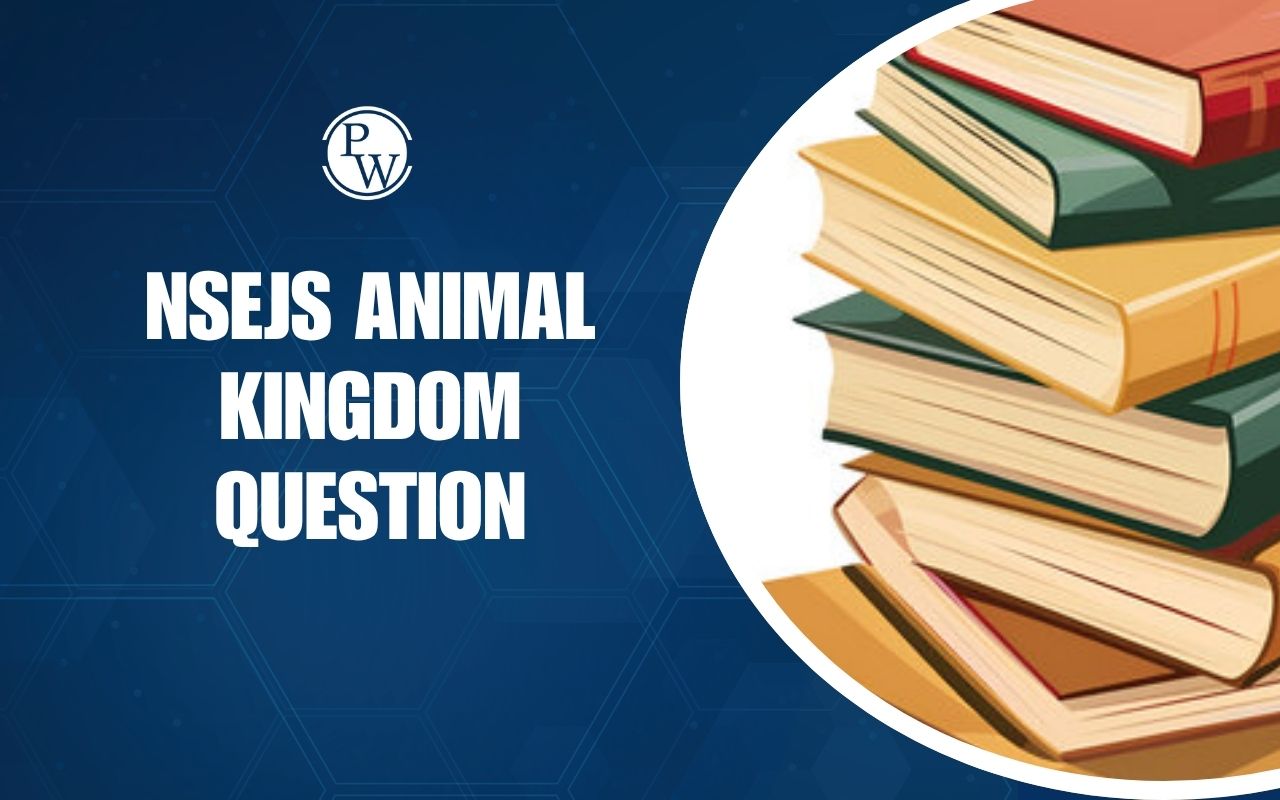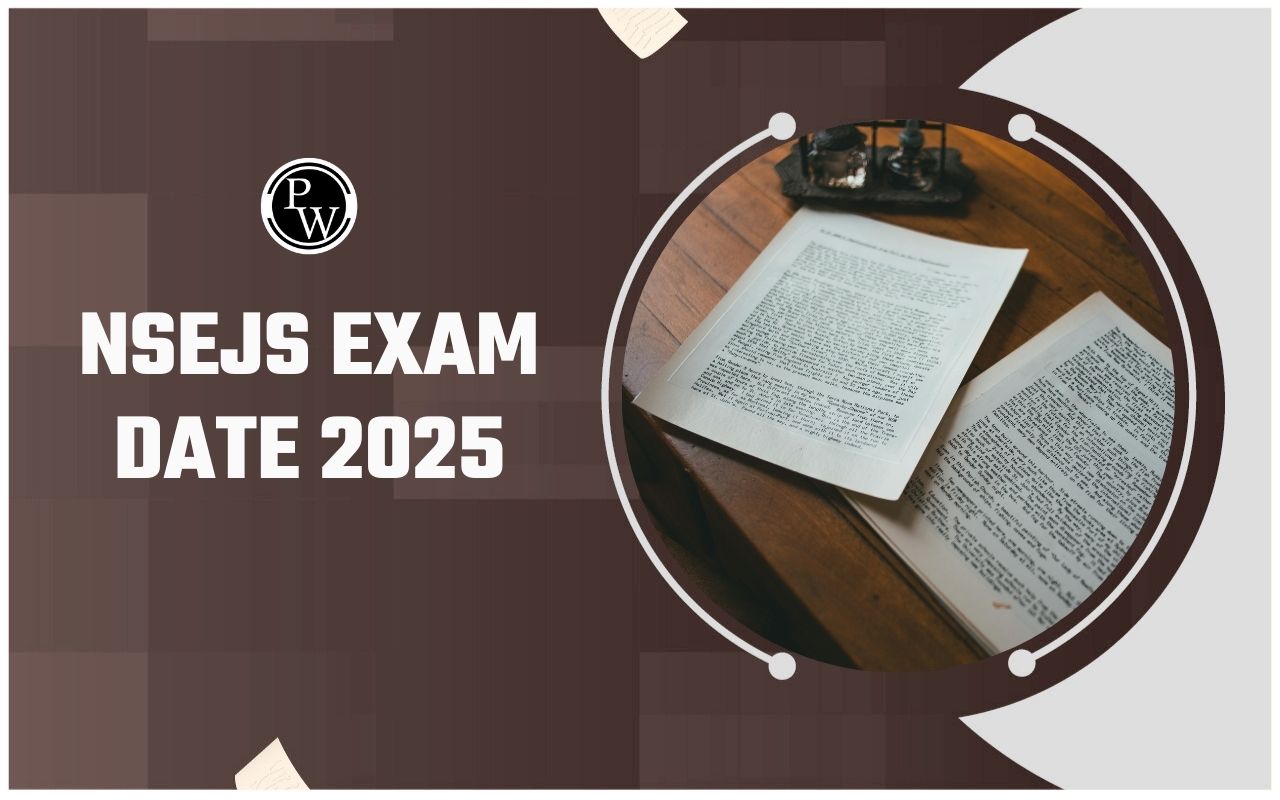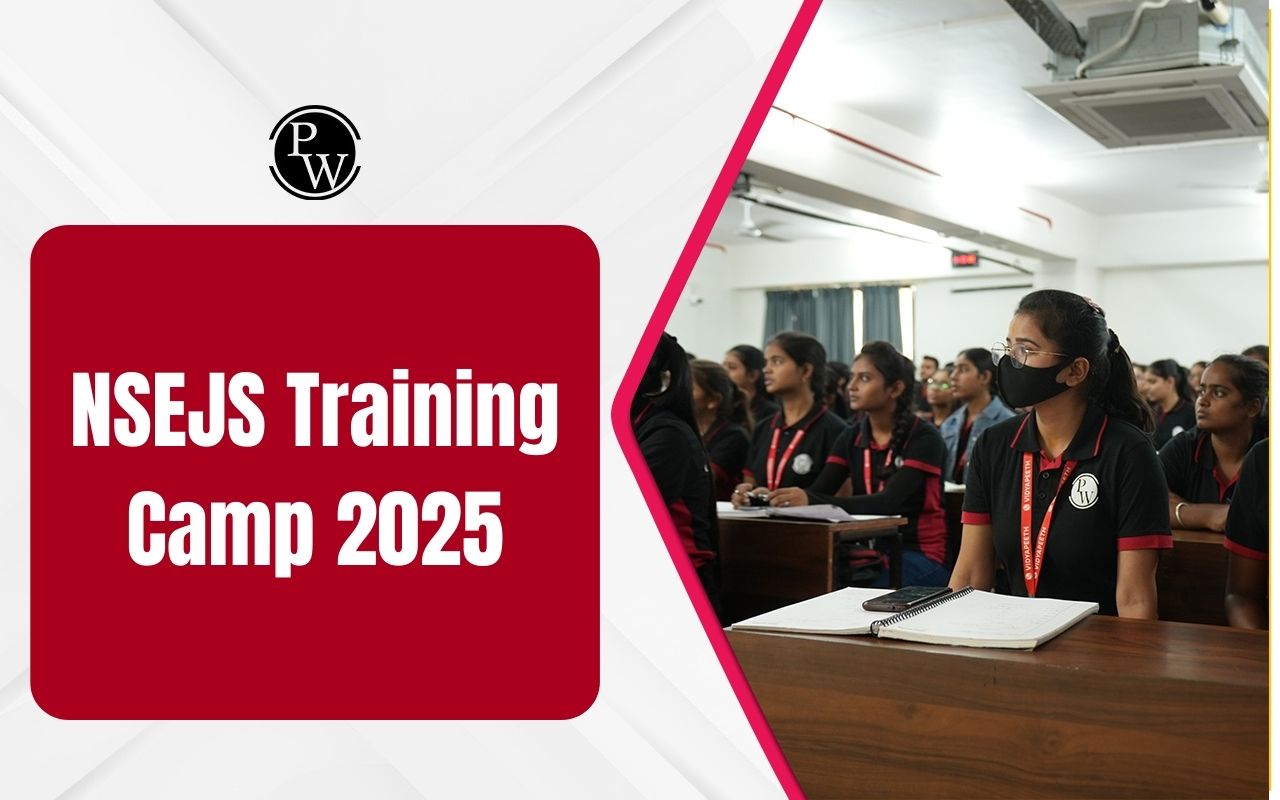

NSEJS Chemistry Most Important Questions: As NSEJS 2025-26 Olympiad Dates are officially announced by IAPT, it is high time to start preparing for the first stage of the Science Olympiad.
As per the NSEJS Syllabus 2025, the NSEJS Chemistry section covers a broad range of topics primarily based on the NCERT syllabus for Classes 9 and 10, with some questions extending into Class 11 and 12 concepts.
For the NSEJS Chemistry section, focusing on the most important questions and topics is crucial for maximizing your score. Based on recent exam analyses, previous year trends, and chapter-wise weightage, here are the NSEJS Chemistry Most Important Questions and question types you should prioritize
Check: How to Prepare for NSEJS?
NSEJS Chemistry Most Important Questions PDF
NCERT Books are the best source of preparation for the NSEJS Olympiad Exam and students should also refer the NSEJS question papers and answer keys. Students must study chapters 9 and 10 of science courses (physics, chemistry, biology).NSEJS Chemistry Most Important Questions PDF
Study without using the internet
NSEJS Chemistry Most Important Questions
1. The correct order of energy levels in the H - atom is
(A) 3s = 3p = 3d > 2s
(B) 3d > 3p > 3s > 2s
(C) 3s = 3p = 3s > 2s
(D) 3d > 3p = 3s = 2s
Ans: (A) 3s = 3p = 3d > 2s
2. Which pair of the following group 13 elements represents the pair of the most stable oxidation state of the pair?
Ans:
3. How many moles of the so called ‘electron gas’ weighs one kilogram?
Ans:
4. Nickel forms a gaseous compound of the formula Ni (CO)x. What is the value of x if under similar conditions of temperature and pressure, methane effuses 3.24 times faster than the compound? (For Ni, M = 58.7)
(A) 3.9
(B) 2.1
(C) 4.7
(D) 3.0
Ans: (A) 3.9
5. The total number of lone pairs of electrons in
(A) 3
(B) 6
(C) 2
(D) 9
Ans: (D) 9
6. One structural isomer of C2H4I2 contains both the Iodine (I) atoms attached to same carbon atom. The bond length of C – I bond is 2.10 Å. Assuming tetrahedral angles and additivity of covalent bond radii, the distance between two Iodine (I) atoms is (given that sin 54.75° = 0.815 and sin 109.5° = 0.94)
(A) 2.10 Å
(B) 2.47 Å
(C) 4.20 Å
(D) 3.42 Å
Ans: (D) 3.42 Å
7. Which of the following is iso-structural with CO2 ?
Ans.
8. Which of the following property does not exhibit periodic behaviour in periodic table?
(A) bonding pattern
(B) Electron gain enthalpy
(C) reactivity
(D) Neutron/proton ratio
Ans: (D) Neutron/proton ratio
9. The molecular formula of a commercial resin used for exchanging ions in water is The maximum uptake of Ca²+ ions by the resin expressed in mol/g is
Ans:
10. A glass bulb of 1 liter capacity contains 4 g methane. The bulb is so as to burst out if the pressure exceeds just 10 atm. The temperature, at which the pressure of gas reaches the bursting point is close to:
(A) 480 K
(B) 487.6 K
(C) 500 K
(D) 373 K
Ans: (A) 480 K
NSEJS Chemistry Syllabus
- Nature and behavior of Matter: Definition and characteristics of matter in solid, liquid, and gas states; changes of state like melting, freezing, evaporation, condensation, and sublimation.
- Nature of Matter: Elements, compounds, mixtures (heterogeneous, homogeneous), colloids, suspensions, solutions, and concentration.
- Particle Nature and Basic Units: Atoms, molecules, law of constant proportions, atomic and molecular masses, mole concept.
- Atomic Structure: Electrons, protons, neutrons, valency, chemical formulas, isotopes, and isobars.
- Chemical reactions: Writing and balancing chemical equations; types of reactions including combination, decomposition, displacement, double displacement, precipitation, neutralization, oxidation, and reduction.
- Acids, Bases, and Salts: Definitions in terms of H+ and OH– ions, properties, pH scale, and common compounds like sodium hydroxide, bleaching powder, baking soda, washing soda, and Plaster of Paris.
- Metals and Nonmetals: Properties, reactivity series, ionic compounds, metallurgical processes, corrosion and prevention.
- Carbon Compounds: Covalent bonding, versatile nature of carbon, homologous series, nomenclature (halogens, alcohols, ketones, aldehydes, alkanes, alkynes), saturated vs unsaturated hydrocarbons, chemical properties (combustion, oxidation, addition, substitution), ethanol and ethanoic acid (properties and uses), soaps and detergents
Benefits of Practising NSEJS Chemistry Important Questions
- Deepens Conceptual Understanding: The questions are designed to test and reinforce a strong grasp of fundamental chemistry concepts, often at a level more advanced than typical school exams. This helps students develop a deeper and more robust understanding of the subject.
- Enhances Problem-Solving and Analytical Skills: Regular practice with challenging questions improves critical thinking, analytical reasoning, and the ability to apply concepts to unfamiliar situations, which are essential skills for both NSEJS and future competitive exams.
- Prepares for Higher-Level Competitions: NSEJS is the first step in the Junior Science Olympiad pathway, leading to national and international stages. Practising important questions equips students to tackle more advanced exams like the Indian National Junior Science Olympiad (INJSO) and even the International Junior Science Olympiad (IJSO).
- Boosts Exam Confidence and Speed: Familiarity with the exam pattern, types of questions (including multiple-correct MCQs), and time management strategies can significantly reduce exam anxiety and improve performance under timed conditions.
- Provides National Benchmarking: By practising the NSEJS Chemistry Important questions you can evaluate standard of exam, students can assess their knowledge and skills relative to students across India, identifying strengths and areas for improvement.
NSEJS Chemistry Most Important Questions FAQs
Is NSEJS Physics Most Important Questions helpful for preparing NSEJS 2025-26?
Can I get the NSEJS Chemistry Most Important Questions PDF?
Why should I practise with the NSEJS Chemistry Important Questions?
How many questions are there in the NSEJS 2025-26 Olympiad?


